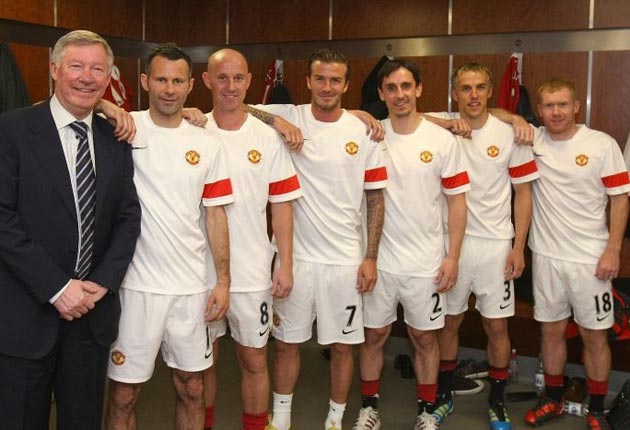Brian Viner: Detractors might not want to accept it but Fergie's is the model to follow

Sir Bobby Charlton hit on something when I interviewed him earlier this week, suggesting that when Manchester United played Benfica in the 1968 European Cup final, most supporters of other English clubs unequivocally wanted them to win, whereas tonight there will be no less equivocation in the widespread rooting for FC Barcelona.
Why is this? What has changed in 43 years? It can't just be that the emotions stirred by memories of the Munich disaster, still so powerful in 1968, with Sir Matt Busby and Charlton himself embodying the fruition of dreams that appeared to have expired 10 years earlier on an ice-bound runway, have inevitably lost some of their poignancy. No, it is also something to do with the Manchester United of 2011, with the club's perceived arrogance, and of course its spectacular success.
Let me now state that, while not a United fan, I hold no anti-United sentiments myself. It seems to me that those of us who support less muscular clubs, either in or below the Premier League, should reserve our disdain, if disdainful we must be, for the outfits that have simply bought their way to the top. In Chelsea's case, incontinently sacking managers along the way.
Of course, United have used plenty of their own financial firepower, but the club's towering achievement is to have developed organically. Brighter football fans recognise that this object of bile is actually a role model for every other club, a paragon (give or take the best part of a billion quid's worth of debt) of what an English football club should be, in the sense that it is reaping the dividends of managerial stability (and, of course, sustained managerial excellence), as well as those of a youth policy that once yielded Ryan Giggs, David Beckham, Paul Scholes and the Nevilles, all more or less at the same time.
So, why the hatred? Plain envy has a lot to do with it. But so does the personality of Sir Alex Ferguson, who is not averse to using bully-boy tactics when they suit him, and whose most cherished players have rarely shied from sticking the boot in.
It might not be the case that referees at Old Trafford are instinctively more generous to United, with the stopwatch and with penalty decisions, than they might be towards, say, Wigan Athletic at the DW Stadium. But when did Wigan players ever intimidate a ref like Roy Keane and his team-mates notoriously did the hapless Andy D'Urso? Moreover, why should it be that Ferguson, Busby and Charlton landed knighthoods, when Bill Shankly, Bob Paisley and Kenny Dalglish didn't? It was never Sir Bill Nicholson, never Sir Jock Stein. I can see why that might encourage the idea that United get special treatment, even if Fergie steadfastly prefers to trade on a delusion of victimhood.
Ultimately, though, the hatred of United says more about the haters than it does about United. For instance, the resentment generated by their dispersed support is plain silly and a little desperate. Wouldn't every club love to have coaches rocking up from Cornwall and even Norway on match days?
Whatever, I can't argue with those English football fans who favour Barcelona tonight because Barça have again this season been the best team in Europe, and should be rewarded for their consistent brilliance. A far more prevalent motive, however, is the wish to see United denied. That's the way of English football. It's also a bit pathetic.
Join our commenting forum
Join thought-provoking conversations, follow other Independent readers and see their replies
Comments
Bookmark popover
Removed from bookmarks